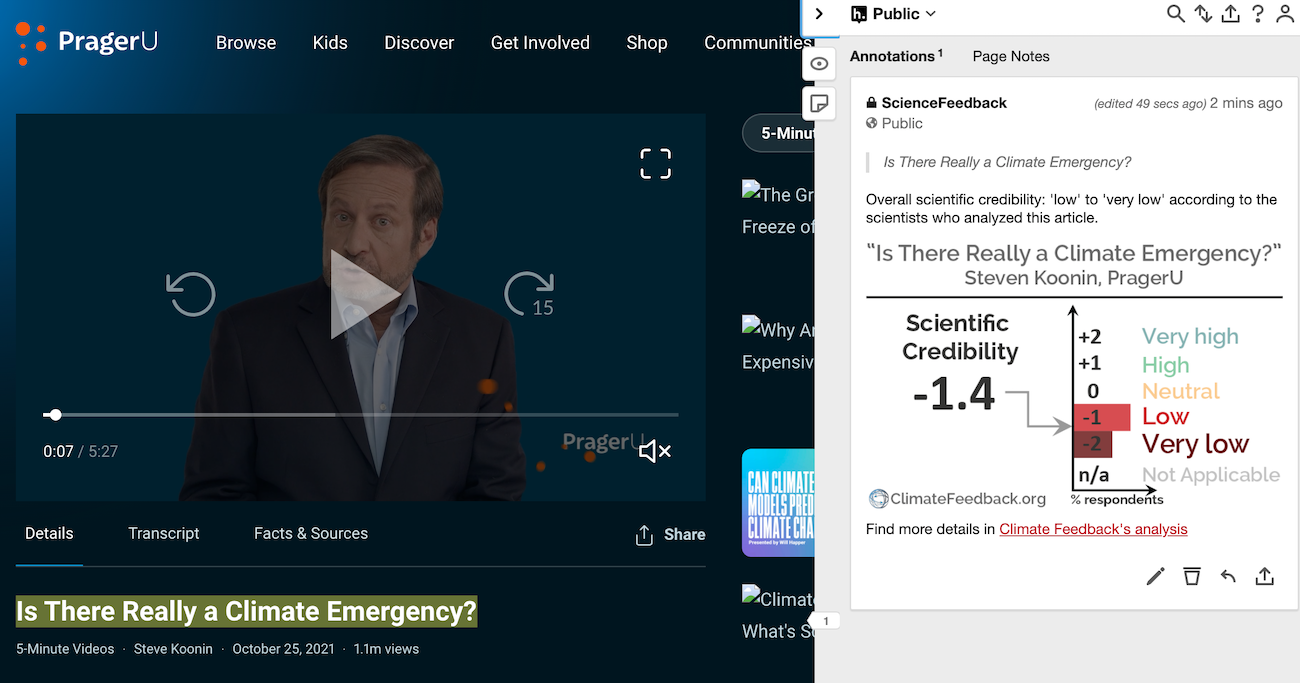
PragerU video on climate change repeats a range of misleading claims by Steven Koonin
“The author of this video, Dr. Steven Koonin, says he is following the scientific reports published by the UN and US government, but by subtly changing wording and choosing not to mention important context this video is very likely to mislead readers.
This style of selective wording and lack of context, an approach called “cherry picking”, applies to every one of Dr. Koonin’s scientific comments.”
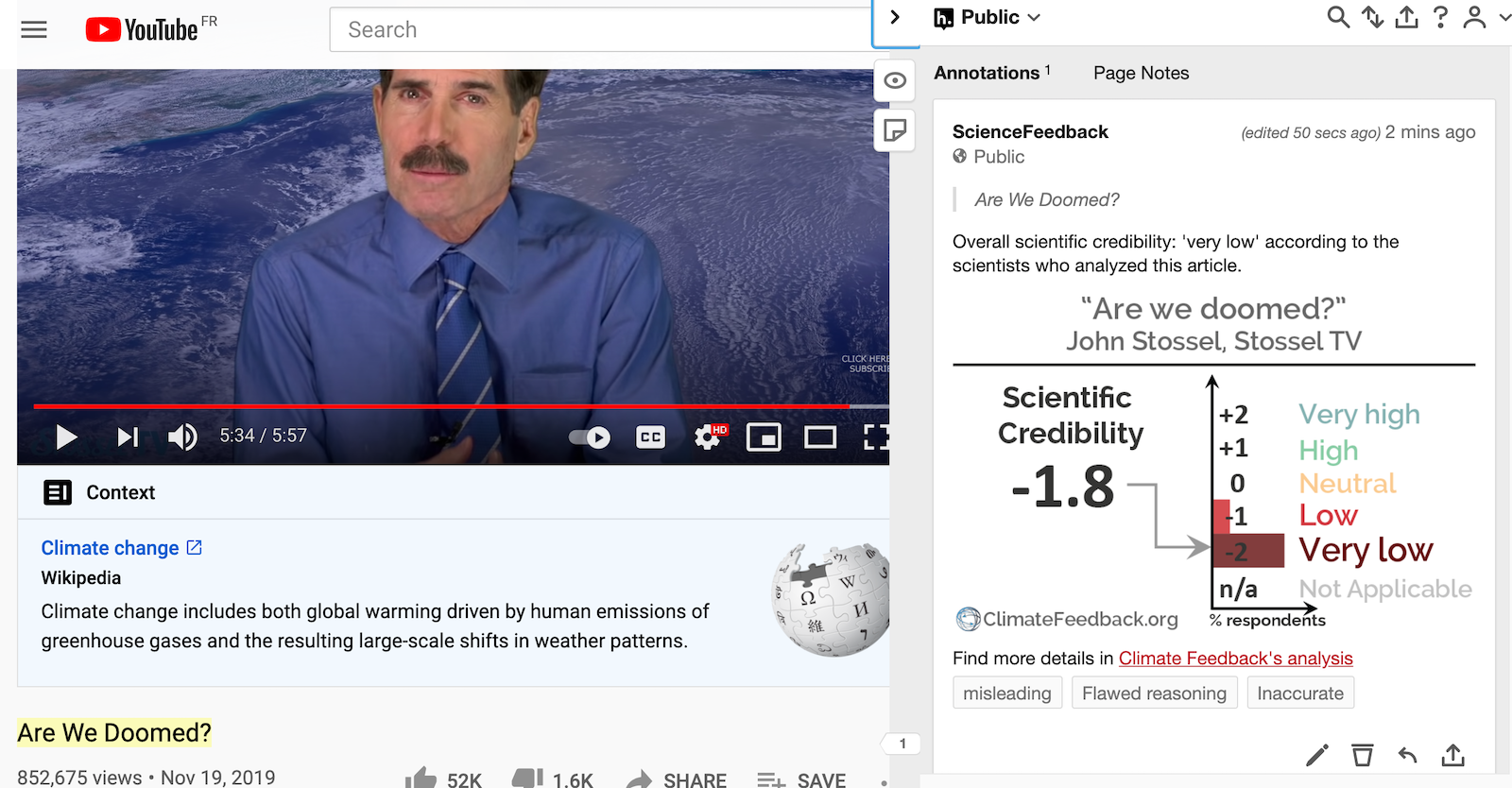
Video promoted by John Stossel for Earth Day relies on incorrect and misleading claims about climate change
“This video is misleading in so many ways it’s hard to know where to begin. For a start there’s a repeated assertion that climate “alarmists” won’t enter debate on climate change, but there are many examples of renowned climate scientists such as Gavin Schmidt, Michael Mann and David Karoly entering into debates with climate change denialists. Many scientists have found such debates to be unhelpful as they give the false impression of balance despite there being broad consensus among climate scientists…”
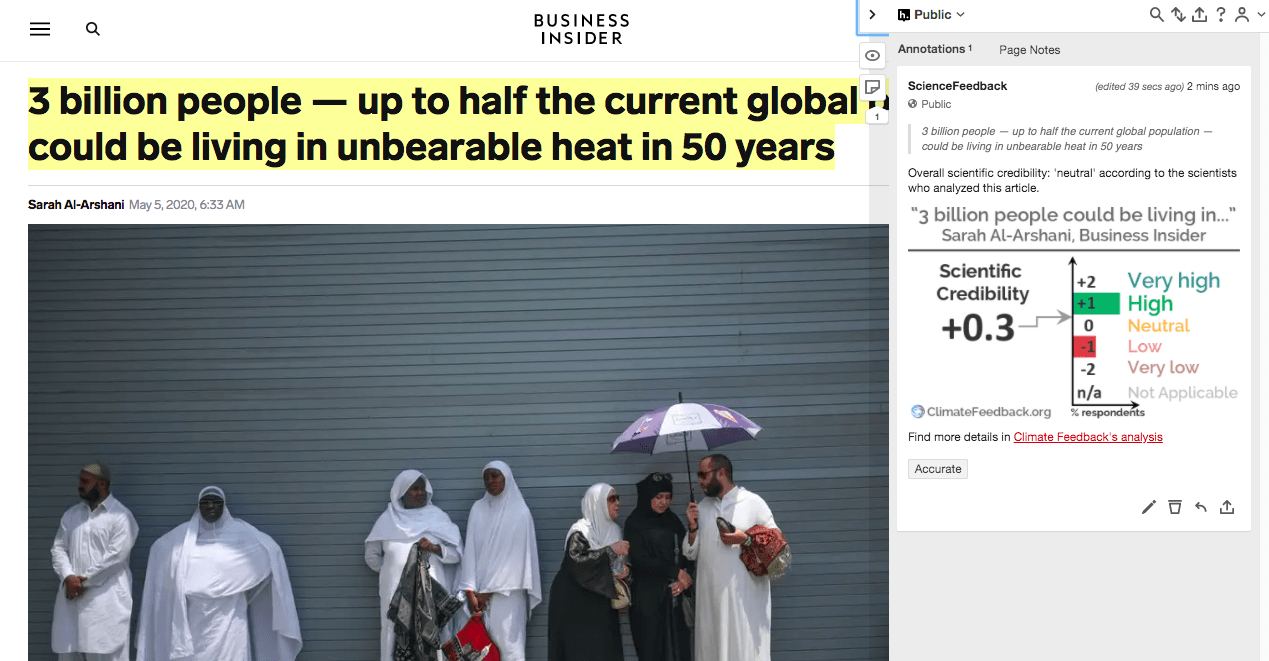
Article in Business Insider accurately describes results from a study estimating up to 3 billion people could live in much warmer temperatures by 2070
The article in Business Insider discusses findings from a study published May, 2020 that projected one to three billion people could live in much warmer climates by 2070, assuming migration is limited and greenhouse gas emissions remain high. The Business Insider article accurately describes the study’s projected changes in mean annual temperatures around the globe, however, the study does not describe these increased temperatures as “unbearable” or “unlivable,” as claimed in the article.
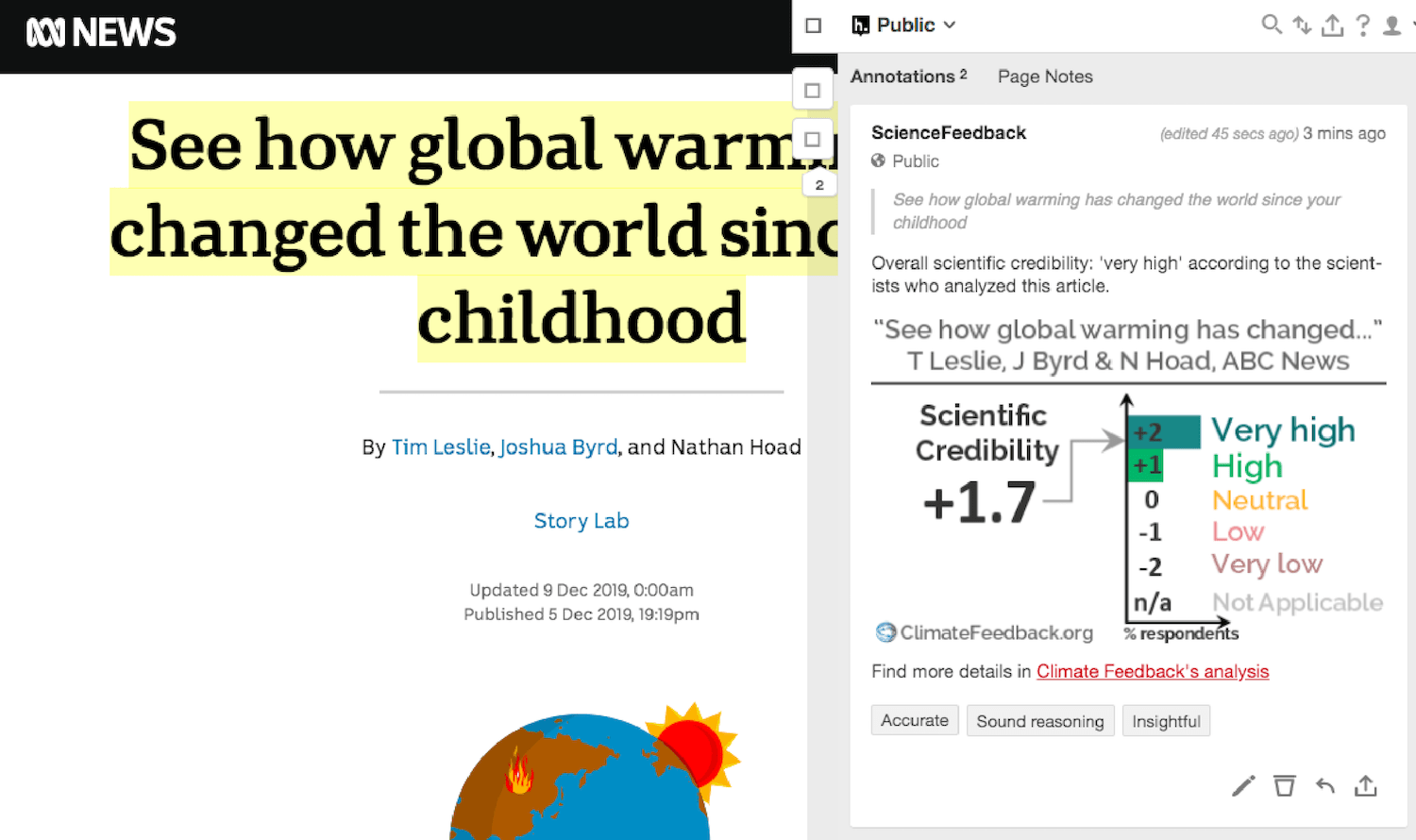
ABC article effectively illustrates important climate trends for Australian readers
“This article is exceptionally good in delivering accurate information in an engaging way. There are many useful statements made about the effects of climate change on extreme weather globally and in Australia and these have been backed up by links to relevant peer-reviewed literature.”
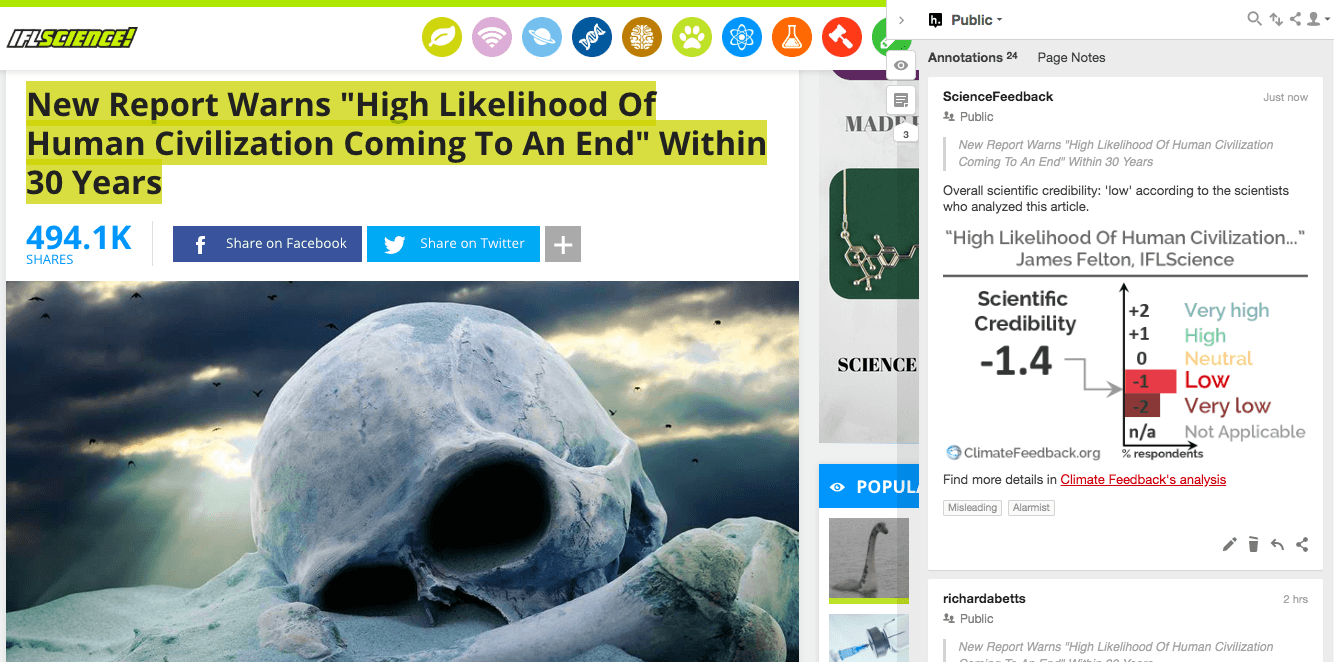
Claim that human civilization could end in 30 years is speculative, not supported with evidence
“The report this article is based on describes a scenario which is unlikely, but several aspects of what is included in the report are likely to worsen in coming decades, such as the occurrence of deadly heatwaves. The conclusion of a high likelihood that human civilisation will end is false, although there is a great deal of evidence that there will be many damaging consequences to continued global warming over the coming decades.”
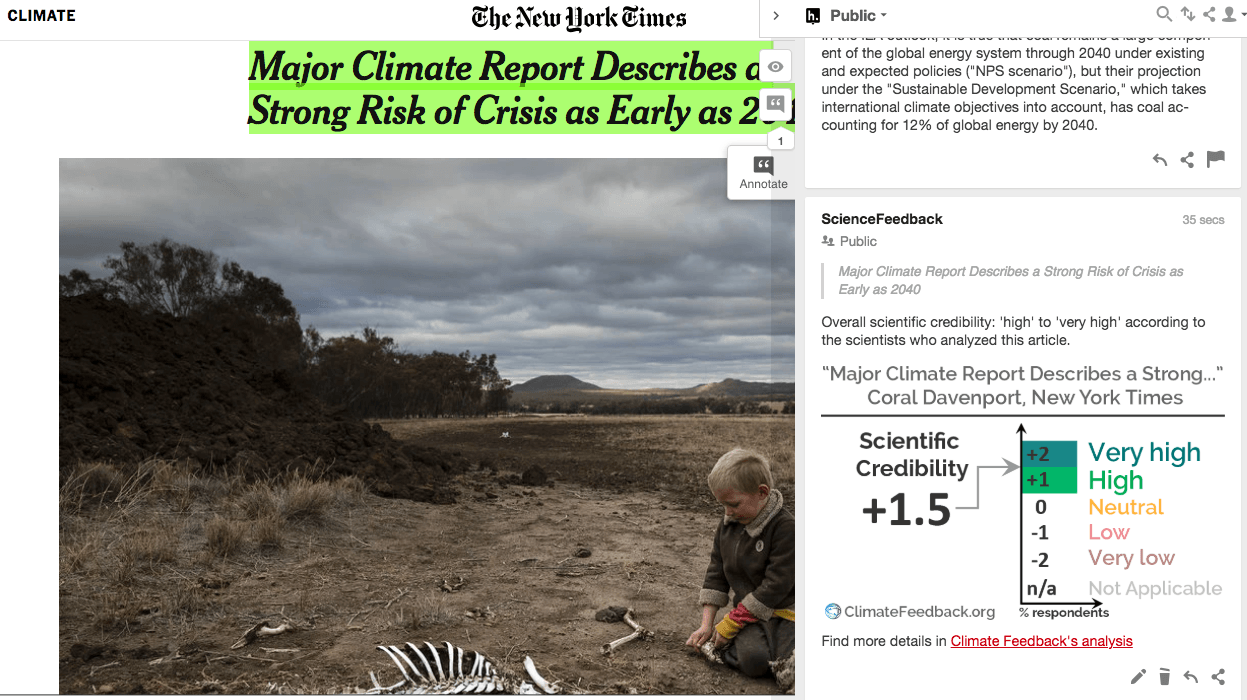
New York Times' coverage of IPCC report clearly presents conclusions
This story in The New York Times covered the October release of the IPCC’s “Global Warming of 1.5 °C” report. Scientists who reviewed the story found that it provided an accurate and detailed summary of the report, though some statements about warming being “worse than previously thought” could have used some clarifying context.
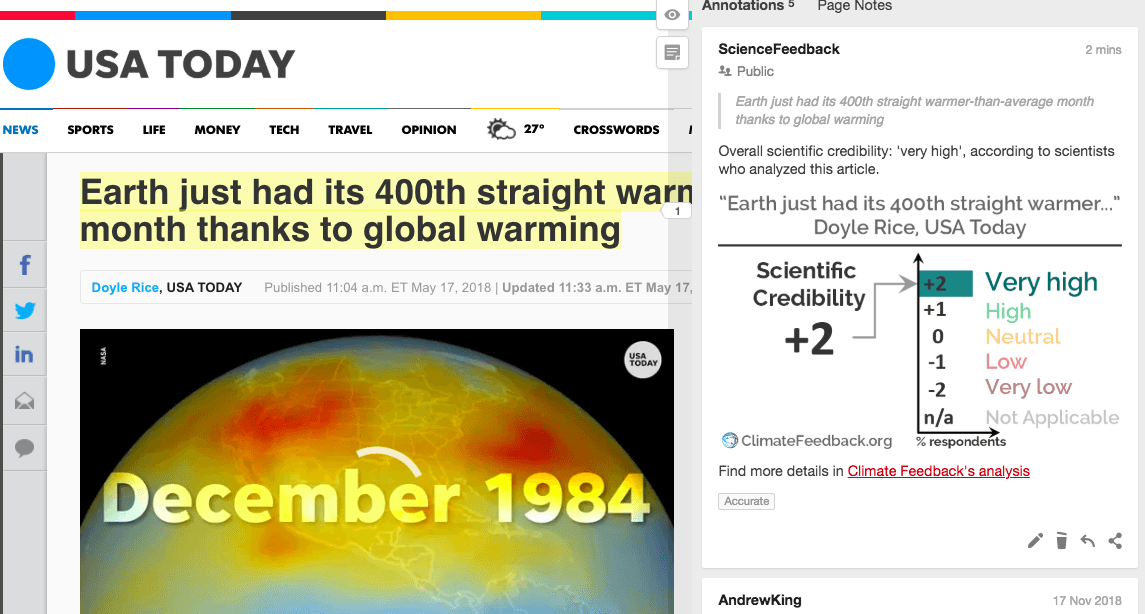
USA Today story updates readers on trend in monthly global temperatures
“The piece accurately reports the surface temperature record warming of recent decades and joins the dots appropriately to the underlying cause of human emissions. It appropriately draws the distinction between regional/national records and the global mean behaviour. The included quotes are to authoritative sources.”
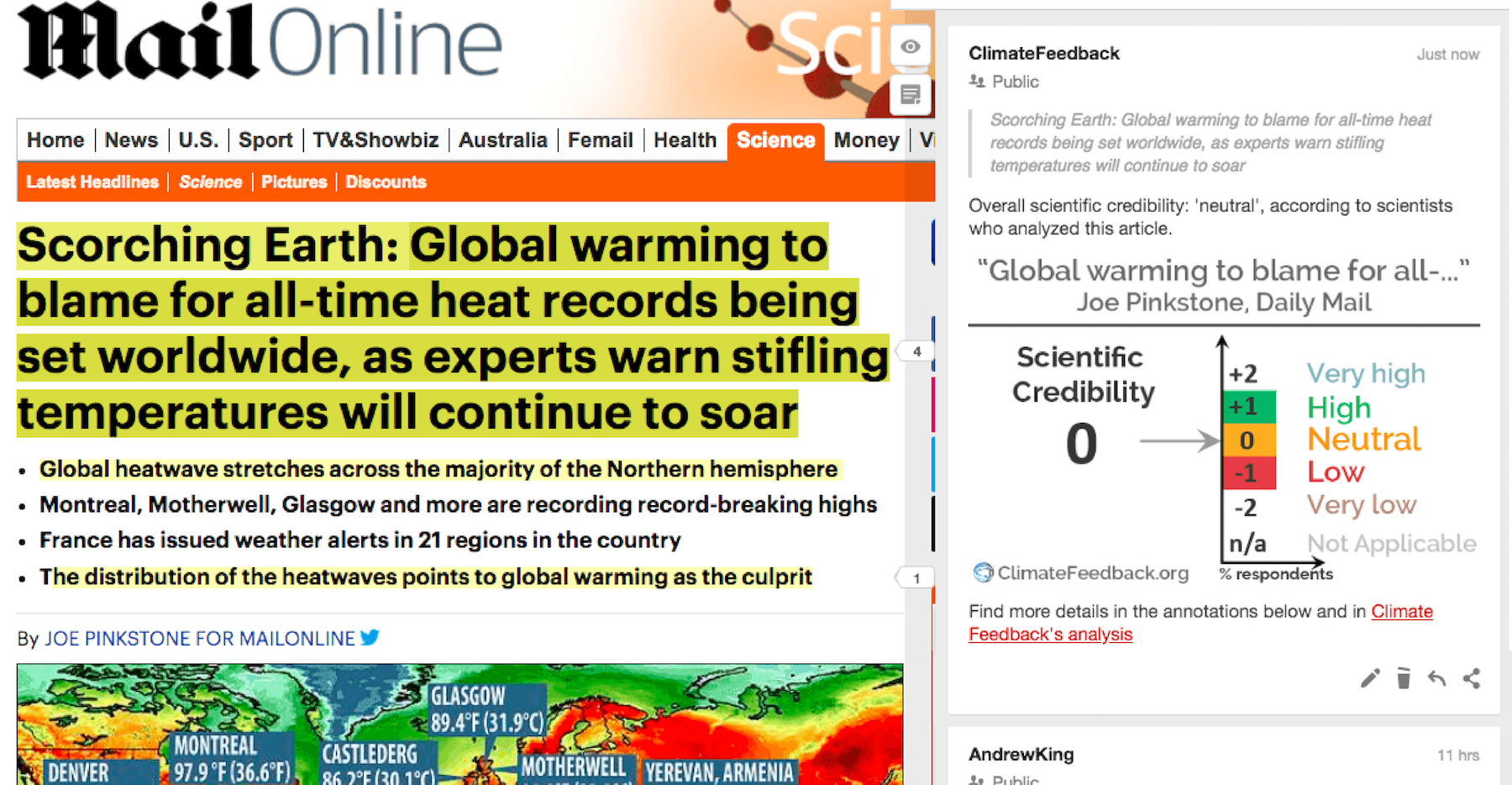
Daily Mail correctly reports that climate change leads to more severe heatwaves, but explanation of recent weather is off the mark
“Mostly this article is accurate in its reporting of the recent heat over North America and Eurasia. However, there are a few misleading statements, including the headline, that exaggerate both the scale of the event and the likely role of climate change.”
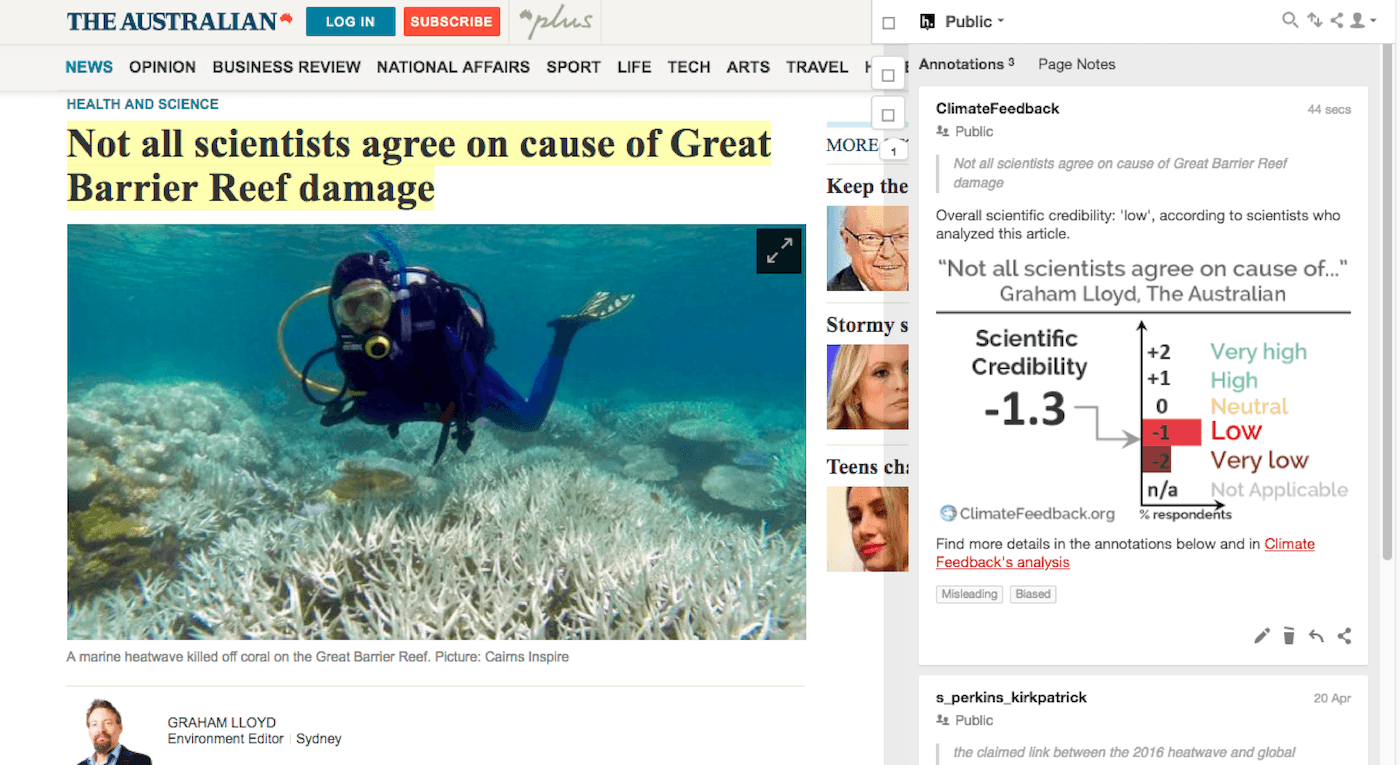
The Australian’s coverage of Great Barrier Reef study creates perception that scientists are divided
“The Australian chooses to present a mixed message on this story when the science is extremely clear. The title and quote from Prof. Kaempf do not represent the views of the broader scientific community.”
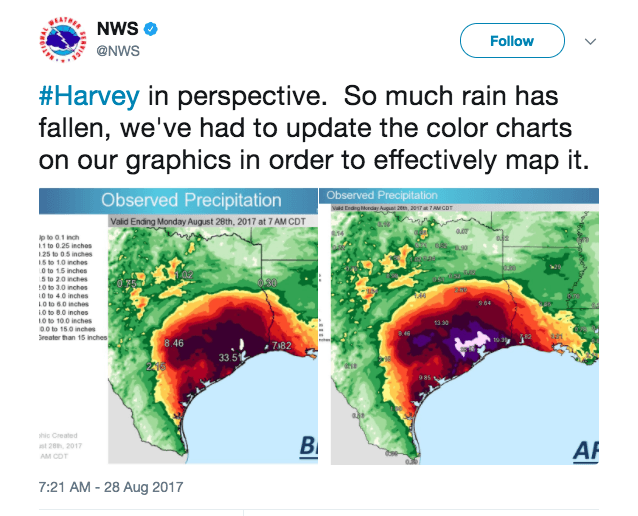
Climate change likely helped increase Hurricane Harvey’s rainfall, but too early to say exactly by how much
Claim:
[climate scientists] say that aspects of the case of Hurricane Harvey suggest global warming is making a bad situation worse.
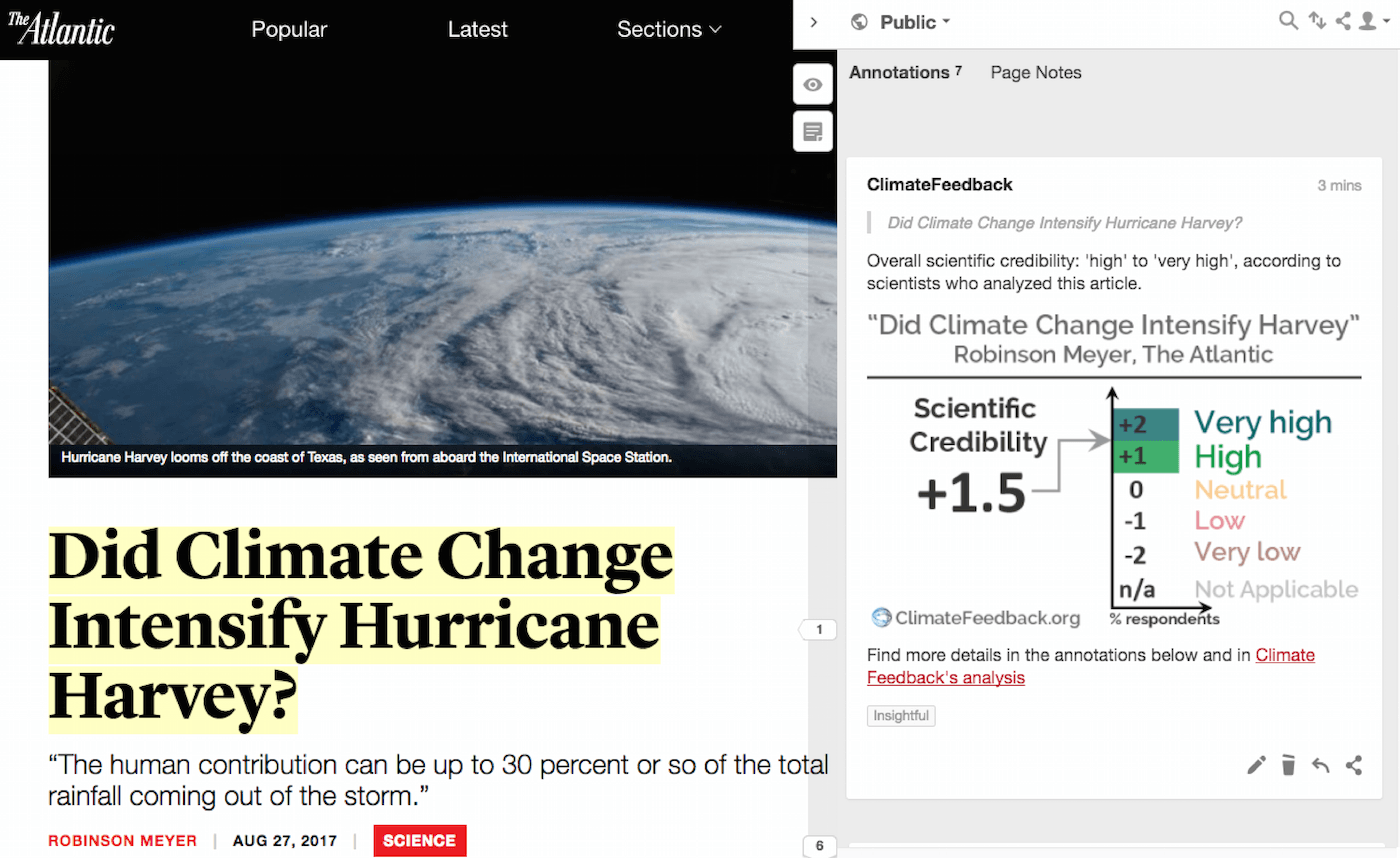
The Atlantic accurately explores climate context for Tropical Storm Harvey
“A well written article that captures the essence of our understanding that under climate change storms will likely bring more rainfall. In the case of Harvey, all we can say is that it is consistent with those ideas. But we cannot say that it is the direct consequence of climate change.”
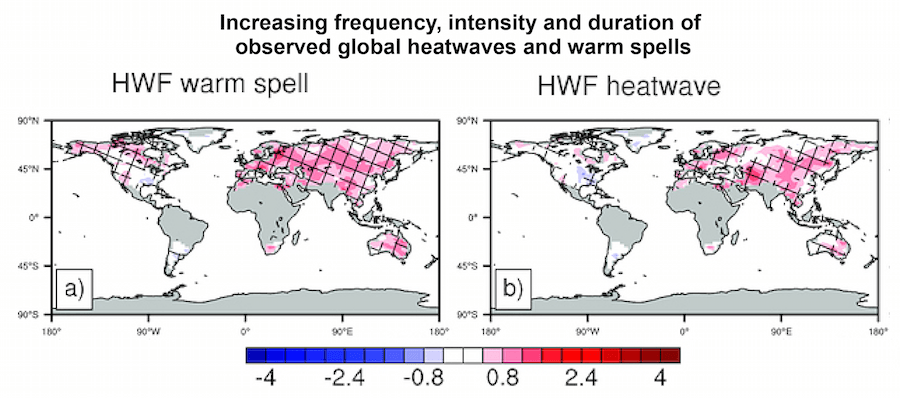
Some extreme weather events are clearly becoming more common, in contrast to Lord Lawson's claim
Claim:
The IPCC, the Intergovernmental Panel on Climate Change, which is sort of the voice of the consensus, concedes that there has been no increase in extreme weather events.
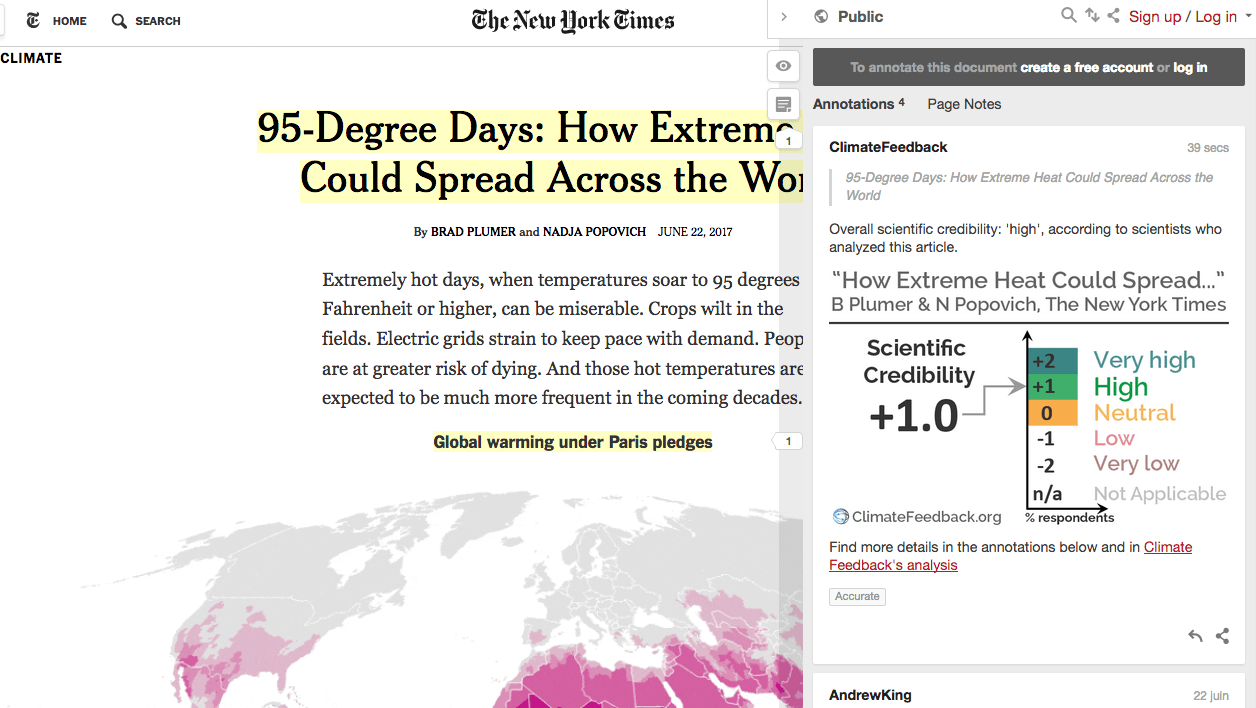
New York Times story highlights the growing number of extremely hot days in a warming world
“The study’s claims all appear to be based on sound, peer-reviewed research. The claims are in line with longstanding predictions and are not cherry-picked or unrepresentative, although there are uncertainties as always in any prediction.”
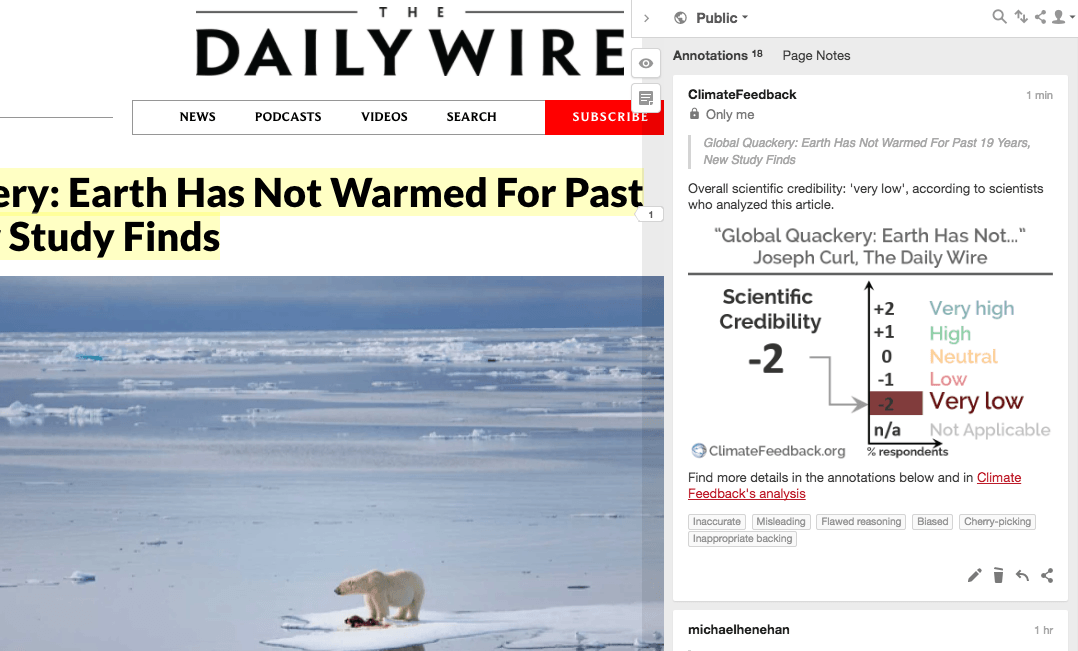
The Daily Wire makes wild claims about climate change based on no evidence
“The article contains little to no rational treatment of observational data, but relies on heavily biased secondhand interpretation… Even the title is based on a lie. There is no ‘study’ that finds static temperatures for 19-years. This article is based on a newspaper article that makes this false statement based in turn on a blog post…”
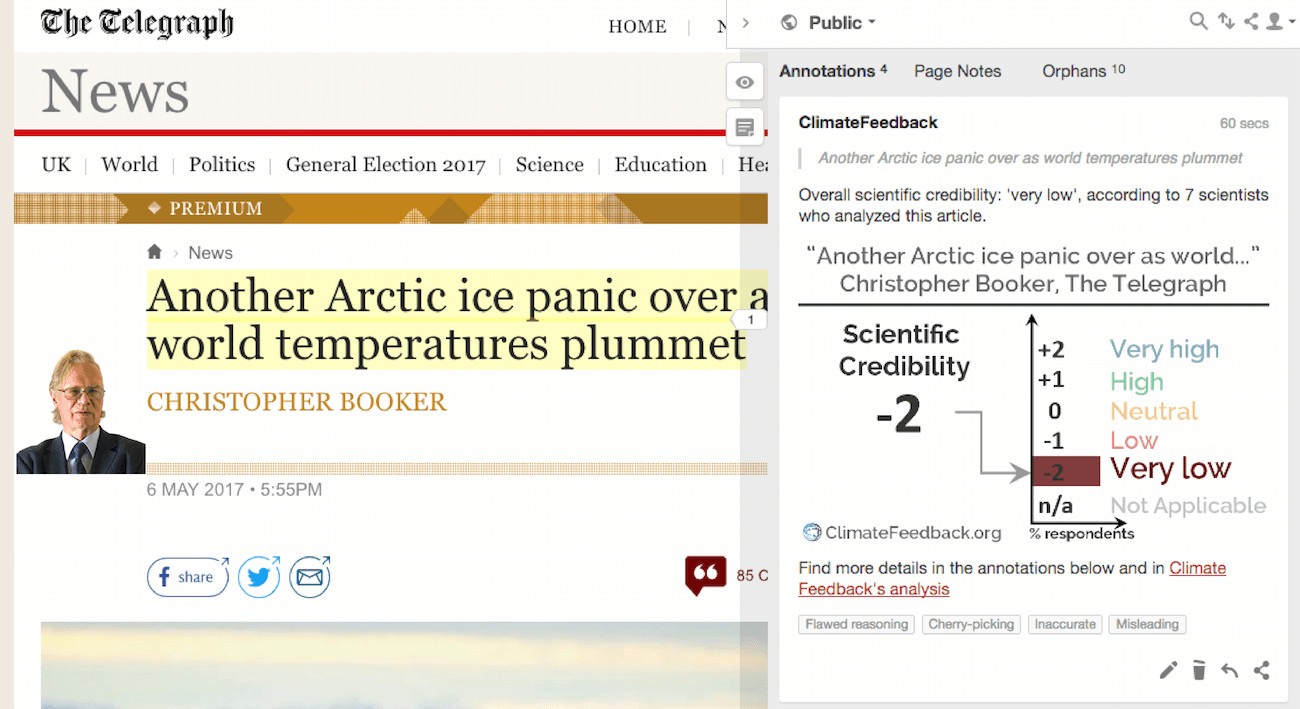
The Telegraph publishes false information about Arctic climate
“This article suffers from a common error in reasoning. The author focuses on individual “snapshots” of the state of the climate while ignoring the long-term trends. Those trends occur over many decades and must be observed/considered over those time scales.”
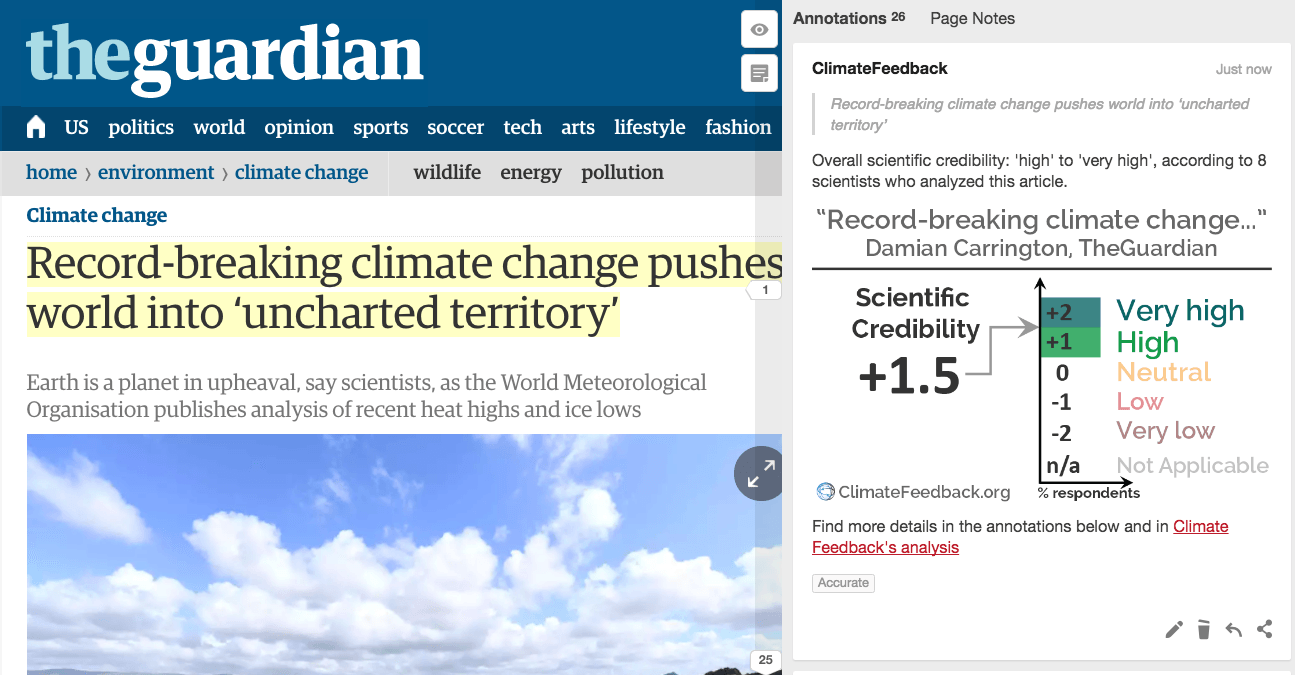
Analysis of "Record-breaking climate change pushes world into ‘uncharted territory’"
“The article clearly and concisely documents some of 2016’s climate extremes and puts them in the context of the warming trend.”
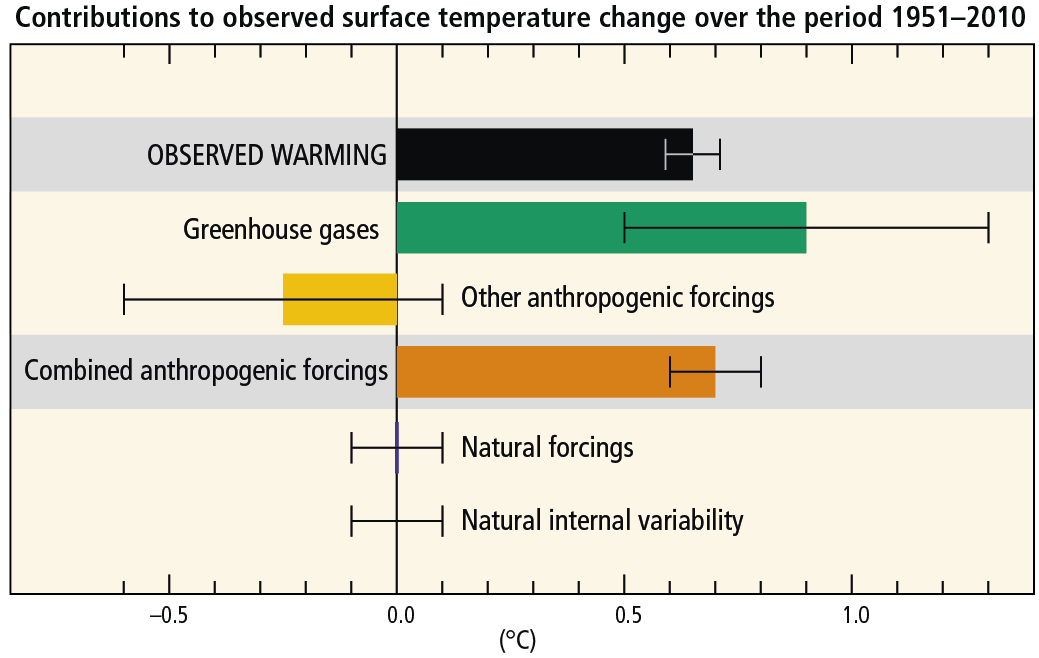
Claim in New Scientist that humans are responsible for over 100% of warming is mostly correct
Claim:
more than 100 per cent of the warming over the past century is due to human actions
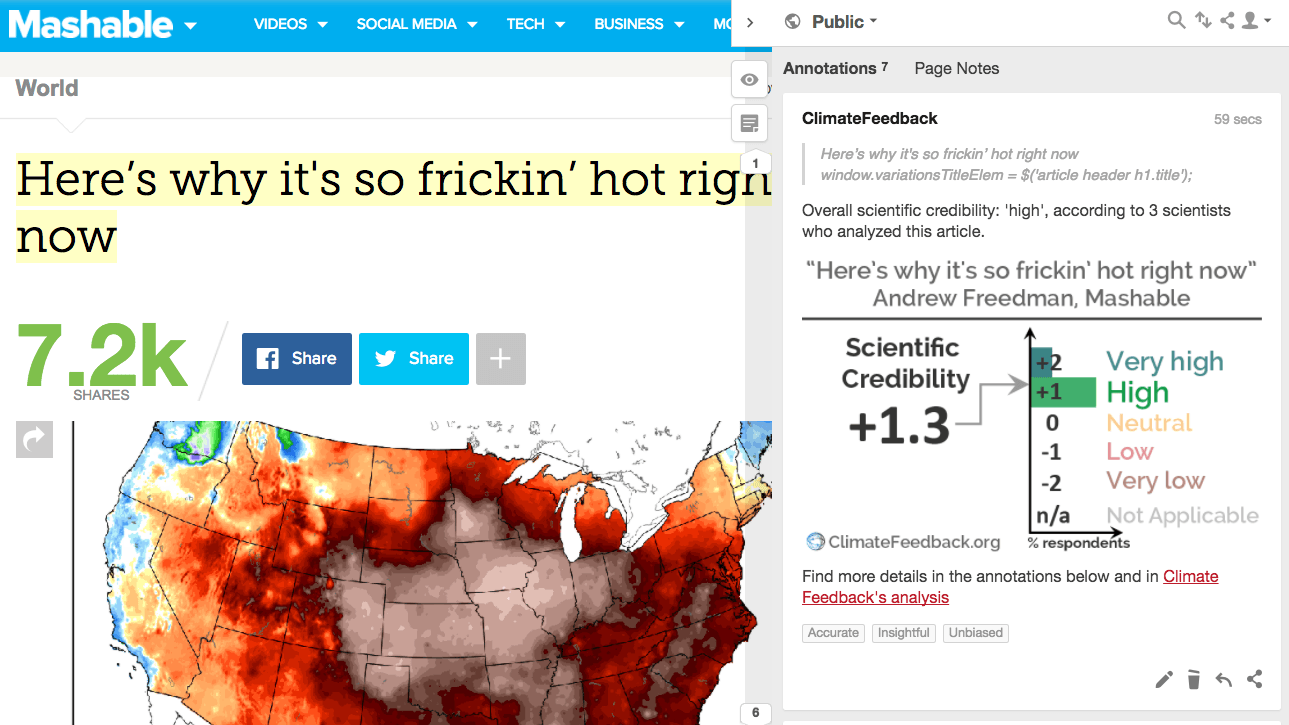
Analysis of "Here’s why it's so frickin’ hot right now"
“a nice summary of the current warm events in the bigger context of climate change. I caution against using a single month of data to support claims about climate change impacts on extremes, but the discussion about record highs outpacing record lows is a good one and provides strong evidence for influence of global warming on regional weather.”
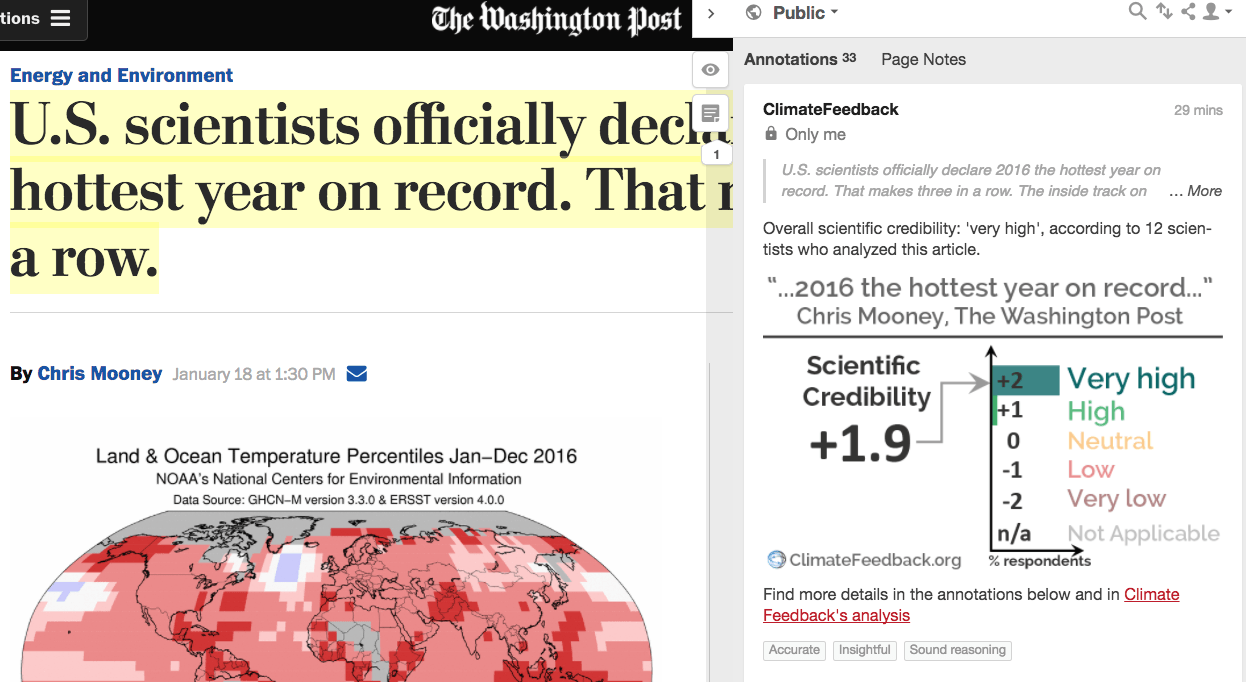
Analysis of "U.S. scientists officially declare 2016 the hottest year on record. That makes three in a row."
“The article accurately conveys the US agencies’ declaration of 2016 as the hottest year on record. It provides some good background material on why the agencies’ numbers differ slightly (treatment of the Arctic) and the contributing roles of El Niño and man-made global warming.”
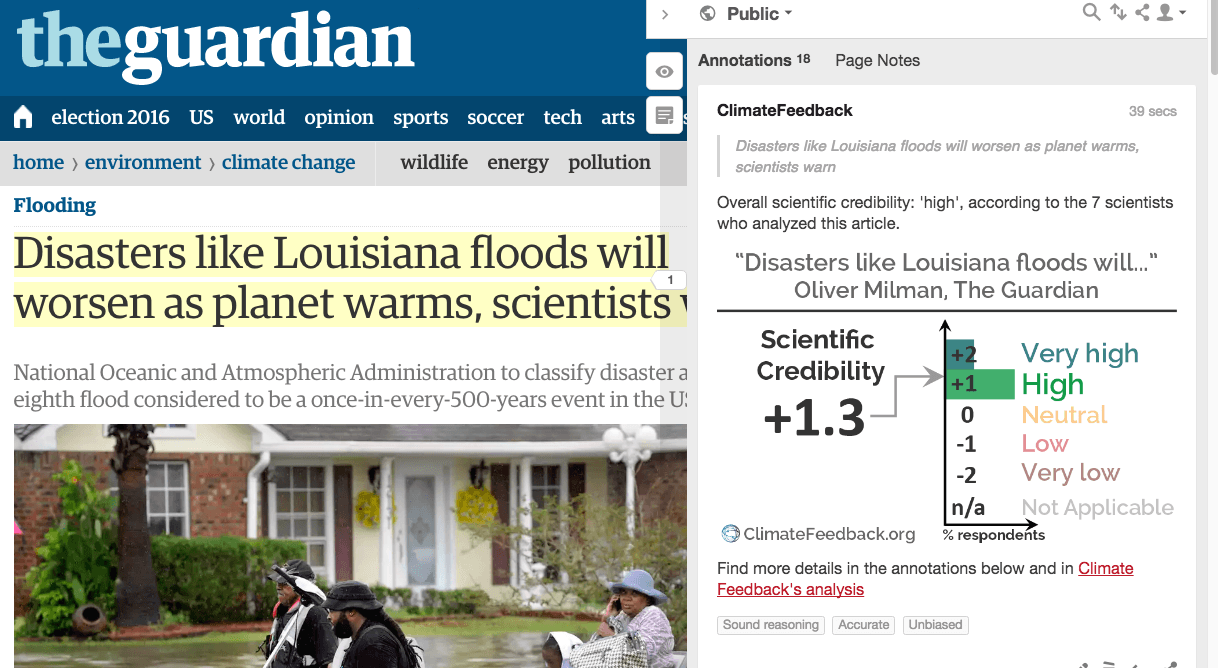
Analysis of "Disasters like Louisiana floods will worsen as planet warms, scientists warn"
“this article does a good job reporting on the recent floods in Lousiana and, more generally, the climate-change-induced changes in the water cycle that underlie scientists’ concerns about future increase in floods. However, “heavy rainfall” is not strictly synonymous to “flooding”…”
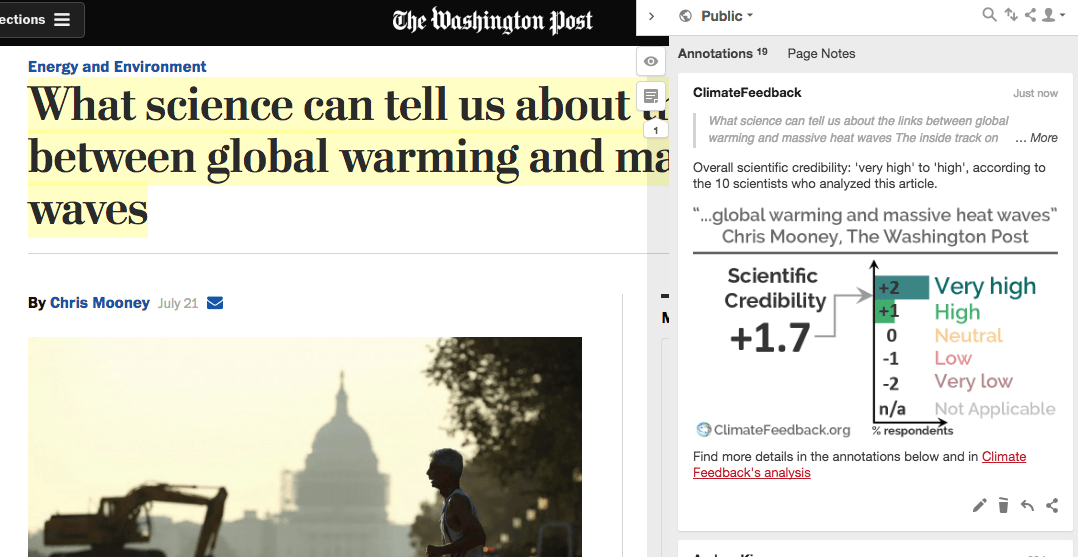
Analysis of "What science can tell us about the links between global warming and massive heat waves"
“This is a well-written article that provides a good overall discussion around the connection between climate change and the ongoing US heat wave. In the absence of a specific event attribution study the role of climate change in this event can’t be quantified, but Chris Mooney provides an insightful overview of the role of climate change in heat events generally.”

Heat waves in the U.S. have already become more frequent and intense due to global warming
Claim:
the U.S. is shattering high temperature records far more frequently than it is shattering low temperature records

